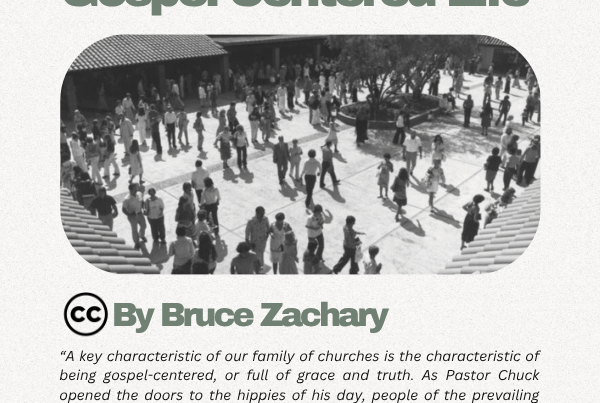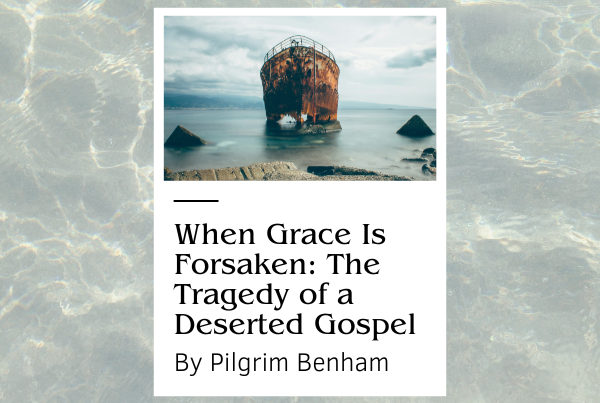
Every generation, we think truth is new to us. There is a beauty in that and a danger as well.
There is a beauty to discovering grace, finding ourselves surprised by the way God loves us and how utterly undeserving we are.
There is a joy to encountering the presence of His Holy Spirit and of the first time He speaks radically and personally in our lives.
There is a peace that genuinely passes understanding.
(Not a peace of pastors’ understanding, which is how I used to accidentally sing the song, with my dad genuinely correcting me because of the theological implications of my mispronunciations).
All of these things are and should be new to us. We should discover them with gleeful joy and utter abandon, as excited as though we are the first to know that God loves us.
The danger is always, ever wrapped up in pride.
Since the Garden, we have swallowed the lie that we know more, listen better and understand the truth more fully then God. We imagine that us, the created, know better than the Creator, and the endless taking of what is not ours continues to this day. In theology, this means we champion grace and Gospel-centered teaching, and sometimes, forget this is the glorious legacy of the church in general (Martin Luther, Augustine, George Muller) and our movement in specific.
Lately, I have been reading a number of fascinating, modern authors. Many of the points they make are excellent, but they feel steeped in prideful authority. Some of their excellent points taste embittered by the battle of their journeys. In contrast, Pastor Chuck’s book, “Why Grace Changes Everything,” changed…. everything for many of my friends. I remember sitting in church services on lazy Sunday evenings, watching him weep for the beauty of the book of Romans.
I remember wondering, “Will I ever love the Word of God like this?”
The gospel according to grace (Ironically, the title of another book by Pastor Chuck) is not new. It is the story our Father began writing before Genesis, and one that carries on past Revelation.
My revelation of grace has come in many places and in many stages.
Several weeks ago, Sandy Adams wrote an excellent article on grace as the great distinctive of the Calvary Chapel movement. Amen.
In the tone and spirit of grace, I pray that I step out more and more in discovering its meaning for my life.
I pray that I weep over the book of Romans and quote Martin Luther and speak to the hardened teens who say, “F#^* no. I’ll never go to church!”
I pray that I will live with them, from my legacy of grace, the love that is new for every generation. I pray I will be caught off guard by the way Jesus loves us.
The beauty of this legacy gives us a confident assurance that, while our faith journey is new and unique, we walk in a long and well-established history.
I am writing today beneath my town’s castle. Birds are chirping, lambs are grazing and the fortress of Launceston, from almost 1000 years, looms over me. I find confidence in the history; I write in the place where George Fox was imprisoned for this same faith, where Cuthbert Mayne was exiled for giving out tracts, where wars and trials were held. Today, there is peace.
Grace is worth the battle.
Grace glimmers through history. Ultimately, grace gives peace.
These two are hand-in-hand in Scripture and always together in my life.
“The grace of the Lord Jesus be with all. Amen” (Revelation 22:21).









